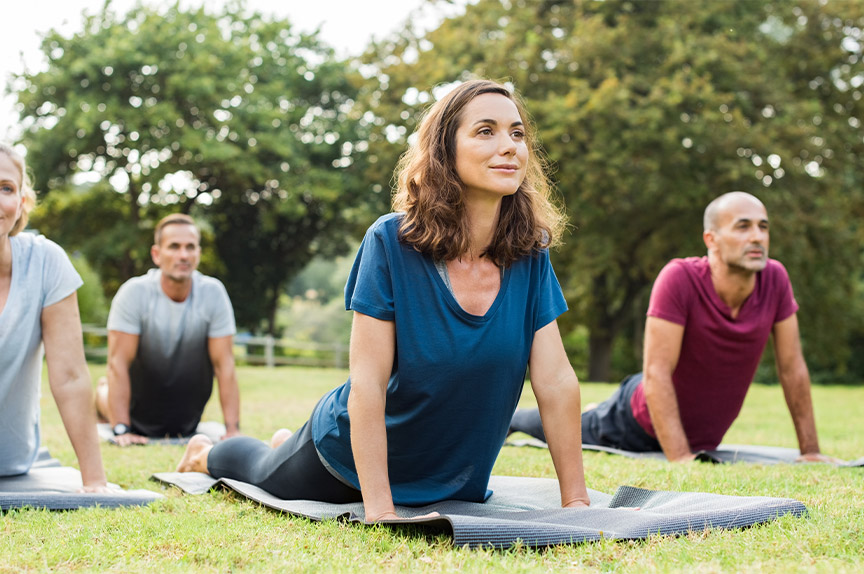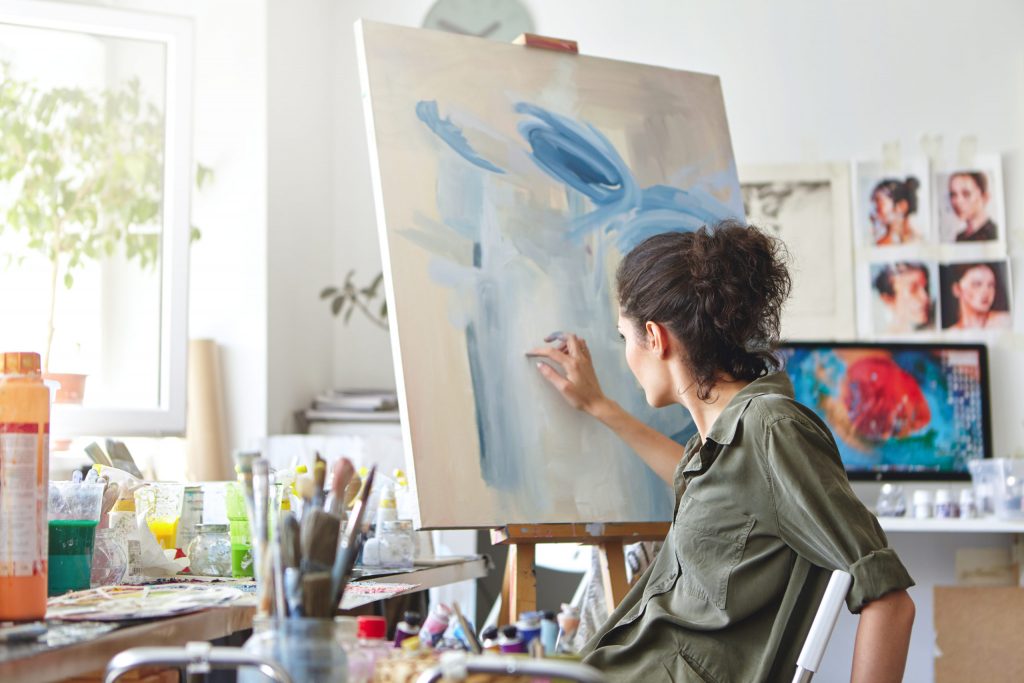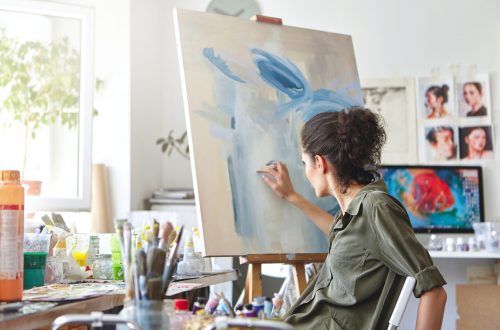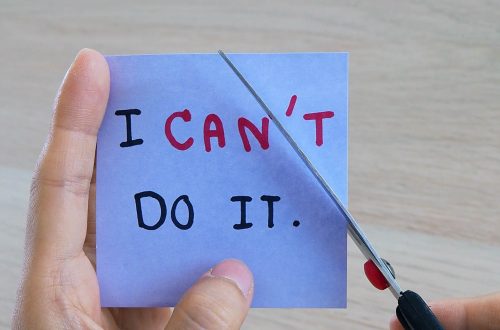
Hobbies that will help you on your journey to recovery
Hobbies that will help you on your journey to recovery
 People who have decided to stop using drugs and alcohol are looking forward to big changes in their lives, but what will those changes be? Most of us worry about recovery because of things like this. A great way to get rid of some of the uncertainty and fear about living a sober life is to think about getting back into old hobbies or starting new ones. In fact, there are quite a few ways that having a hobby can help our efforts to get better and make our lives better. Let’s think about some of these:
People who have decided to stop using drugs and alcohol are looking forward to big changes in their lives, but what will those changes be? Most of us worry about recovery because of things like this. A great way to get rid of some of the uncertainty and fear about living a sober life is to think about getting back into old hobbies or starting new ones. In fact, there are quite a few ways that having a hobby can help our efforts to get better and make our lives better. Let’s think about some of these:
Hobbies Prevent Boredom
When you’re in recovery, having too much free time can lead to a common trigger: boredom. During the time we were actively addicted, using seemed like a natural way to deal with boredom and restlessness. It can be hard to get used to a life where you have to make your own routines and plans, and having too much free time makes it easy to fall back into old habits. Getting new hobbies is a healthy and proactive way to avoid doing any of our old habits when we’re bored.
Hobbies help with thinking too much.
Boredom can go hand in hand with other ways of thinking that can lead to relapse, like thinking about how much you want something. To stop a relapse, we must be aware of the kinds of thoughts we have. Having a hobby can be helpful in two ways: It keeps our thoughts and actions focused on specific things and positive goals, and it keeps our minds from wandering for too long. Without something to work on, it’s easy to fall into the traps of negative thinking, obsessing over things we can’t change, feelings of frustration or dissatisfaction, and many other destructive, addictive ways of thinking. Learning new skills, making arts and crafts, and doing things with a group are all good ways to learn how to keep your thoughts positive and helpful.
How a Hobby Might Assist in Overcoming Depression and Anxiety
Your brain’s reward system stays in good shape with hobbies.
Promoting a healthy reward system is another important part of getting better. In the early stages of recovery, the effects of addiction can still be seen in the brain’s reward system. This means that it’s hard to find happiness in things that have nothing to do with our addiction. The reward system can be fixed, though. People in recovery can rediscover what it’s like to have a healthy reward system by getting involved in hobbies. Also, you should know that you might not see results right away. Dopamine is supposed to be released when you do something fun or productive. Practicing a hobby or sport can help your brain start to release that dopamine, which makes you feel good.
Hobbies can help you meet new people
A big part of preventing relapse is staying away from the things that make us want to use again. Most of the time, triggers are people, places, things, or situations that are linked to our old habits. They are called “triggers” because they bring back memories, feelings, and thoughts about using an addictive substance. It’s not easy to stay away from triggers, and “people” can be some of the hardest ones to change.
There are many hobbies that help people meet new people and join new social groups, sports leagues, book clubs, volunteer opportunities, or groups of people with similar interests. Connecting with new people takes our minds off of our old friends, which makes it less likely that we’ll become isolated or go back to doing things that make us feel bad.
Hobbies help boost self-esteem
During active addiction or in the early stages of getting help, our sense of self-worth often hits rock bottom. Addiction often leads to a series of bad things that keep happening and can hurt our self-esteem and mental health in general. To get over an addiction, you have to admit that you have a brain disorder and that you made mistakes. You also have to relearn how to feel good about yourself.
Hobbies are a good way to get this part of our lives back on track. Whether we’re finishing a book, putting the final touches on a project, or playing a team sport, these things can give us a sense of accomplishment that makes life in recovery full and satisfying.
Some ideas for new things to do
How to cook and eat well- It’s important to take care of our bodies and fix the damage we did while we were using. Most of us have been careless about what we eat for years. Find a healthy recipe once a week and make it for dinner. That could be a good hobby.
Blogs and social media:
Joining online recovery groups is a great way to start a new hobby and meet new people. Just remember to look for groups in your area that help people get better. They might get together to play volleyball, barbecue, have a picnic, go hiking, go camping, or do even more.
Hiking and camping are great ways to get out into nature and start new hobbies like fishing, rock climbing, or just watching the world around you. There are many things you can do to keep your mind busy, improve your health, and clear your head.
Continuing education:
Learning is a skill and a hobby that you can never finish. Find a local community college or learning center and sign up for a class. This gives us structure and keeps our minds busy with something good and helpful. You should want to learn what you’re taking, whether it’s a new language or a skill that will help you in your job.
The bottom line is that it’s up to you to choose a new hobby. You have the freedom to figure out what makes you happy. Follow these tips to find a hobby that works for you and keeps you from going back to using.
Good Activities for Finding Fun
Because of our addiction, we probably haven’t had a hobby in a long time. Addiction makes us lose interest in life, and one of the first things to go is the fun we had doing different things. Here are some ideas for finding healthy and important things to do:
- Think about the things you liked to do before you became addicted. There is no reason why we can’t go back to these activities and enjoy them again.
- Find out about hobbies online. Pinterest is a great place to get ideas for a new project or find motivation to start one.
- Ask people what they’re interested in, and if you’re interested in the same thing, invite yourself along. You’ll have someone to go to the group with, and it’s a great way to try out new things without making a big commitment.
- Look for local classes. Most local places offer different kinds of classes for low cost or free
- In recovery groups, you can make friends. Ask other group members what they like to do. When they see that you’re looking for new hobbies, they will likely ask you to join them.
- If you can’t think of anything to do right now, you could volunteer at a local charity. Their budgets are tight, so they appreciate any help they can get.
- Find ways to be helpful or to be needed. Many of us have relationships with friends and family that we need to fix. Helping family members or other people we have hurt can keep us busy and also help us fix the relationship.
- Make a list of different activities that you like and dislike. “I don’t know what to do” is one of the first things people say when they are looking for a new hobby. There’s a simple way to fix that. Making a list of what you like and what you don’t like will help you find your passions. Having a visual list is extremely helpful, especially if it’s difficult to identify idea’s off the top of your head.
Once you’ve made your list, choose the one you’re most interested in. The one that makes you light up with excitement. This should point you in a general direction. Next, find a hobby that fits your chosen interests and now you can do that via the hobbytwin app.
Make a plan for the next 30 days and change it as needed. Once we’ve chosen the hobby we want to do, the next step is to make a plan for how to do it. Give yourself enough time to try out your choice, and don’t decide on the spot to stop and try something else. Commit yourself to learning and enjoying your hobby to the fullest. After a month, you’ll know if your chosen hobby is a good fit for you and your needs. If you decide it’s not for you, go back to your list and think about what else you could do.







